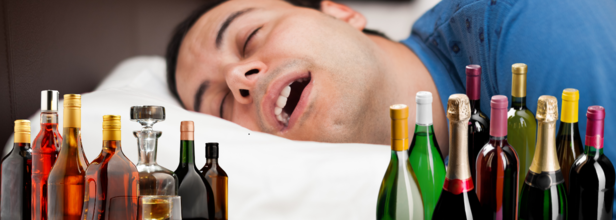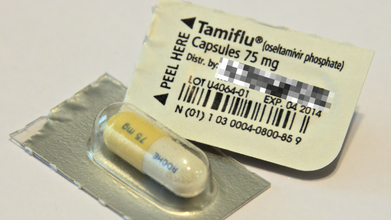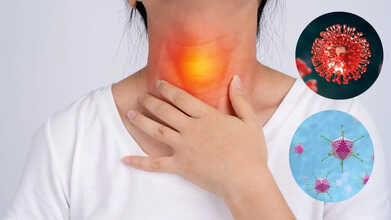- Health Conditions A-Z
- Health & Wellness
- Nutrition
- Fitness
- Health News
- Ayurveda
- Videos
- Medicine A-Z
- Parenting
Is Alcohol The Reason Why You Snore?

Credits: Canva
Alcohol is known to increase your snoring noises, especially if you drink just before going to bed. This can cause problems for you to achieve proper REM (Rapid Eye Movement) sleep. It is a sleep stage when most dreams occur. During REM sleep, a person's brain activity, breathing, heart rate, and blood pressure increase and their eyes move rapidly while closed. The muscles in the arms and legs also temporarily become unable to move.
So does alcohol cause snoring?
As per a 2020 study, published in the American Journal of Managed Care, found out that alcohol consumption close to bedtime can contribute to lowest oxygen saturation (LSAT) to people who are at risk for snoring or obstructive sleep apnea (OSA).
This happens because alcohol is a depressant and it can relax your body's muscles including the ones in your throat. It can relax your epiglottis, the flap of cartilage that acts as a gateway between your throat and mouth. Under normal conditions, epiglottis remains in an upright or open position when you breathe, this allows air to move freely from your nasal passage through your trachea and into your lungs. But when you swallow something, it folds back to prevent food, drinks, or saliva from entering your trachea.
However, when you drink alcohol, your epiglottis relaxes along with other muscles of your throat, not doing the job correctly. Even your nasal passages could also become swollen. To compensate, your body then pushes you to breathe in more deeply, creating vibrations across the skin in your esophagus that could lead to snoring.
What else alcohol leads to?
Alcohol could lead to more than just snoring. It leads to sleep apnea too. A 2020 study titled Impact of Alcohol Consumption on Snoring and Sleep Apnea: A Systematic Review and Meta-analysis, reviewed medical data from 279 patients diagnosed with OSA. The study then further separated them into one control group that did not drink versus the group that did.
The study to draw results, focused on the Apnea-Hypopnea Index (AHI), and the LSAT. It found that participants who self-reported drinking close to bedtime experienced a mean difference of 3.98 more AHI events per hour as compared to the control group that abstained. The group that consumed alcohol also experienced a lower LSAT.
Another 2022 study titled Alcohol as an Independent risk factor for Obstructive Sleep Apnea, found that alcohol served as the independent risk factor for a person to increase their chances of experiencing OSA. This study also analyzed 793 OSA patients and separated them into groups of who drink and who did not. The study also found similar results as of the 2020 study.
So, should you leave alcohol?
While the best thing to do would be to leave alcohol, as it has many health risks. Experts also have reiterated that no matter the intensity, whether it is regular consumption, binge drinking or high-intensity drinking, alcohol consumption does no good to your body. However, it is important to note that quantity and timing of drinking alcohol before going to bed matters.
As per a 2008 study titled Disturbed Sleep and Its Relationship to Alcohol Use, reviewed previously published medical data specifically focused on determining the relationship between the quantity of alcohol consumed versus how it impacted sleep quality.
The study also found that 2 to 3 drinks consumed before bedtime could initially promote sleep, but those beneficial effects began to disappear after as little as 3 days of consistent drinking.
Tamiflu Isn't The Only Flu Medicine, Expert Shares Other Alternative

Credits: iStock
Flu season is hitting hard this year, and the symptoms could feel relentless. People are suffering from rising fever, hacking cough, blocked and stuffy nose and sore throat. While many people get relief from Tamiflu, which is a prescribed antiviral medication that is used to treat or even to prevent illness, there are other alternatives available too.
Dr Ari Brown, a Texas based pediatrician and the author of Baby411 book series told CNN health that one of the most common complaints that she gets to hear from Tamiflu is vomiting. A 2023 study published in the Pediatric Infectious Disease Journal notes that 18% of people experienced vomiting with Tamiflu, as compared to 5% with Xofluza, an alternative.
“I’ve also had a few pediatric patients experience moodiness with Tamiflu, which is reported in the literature,” she said.
Read: Adenovirus Cases Rise In UK, Health Authorities On Alert
Tamiflu is usually gives to treat flu in people ages 2 weeks and older and to reduce the chance of getting the flu in people 1 year and older. The medicine could be administered in both form, liquid and capsules and usually taken twice daily for five days straight. This is prescribed for when flu is to be treated. However, when used for prevention, it is typically taken once for 10 days.
What Are The Other Alternatives Available For Flu Treatment?
Xofluza: It is administered as a single dose tablet and is approved for ages 5 and older. This medicine can also be used to treat or to prevent the flu. While it costs nearly $200 for those without insurance, eligible patients can use coupons to lessen costs. Dr Brown points out that this medicine could have side effects like diarrhea and vomiting. However, the study aforementioned notes that for this, only 5% patients had vomiting symptoms, when compared with Tamiflu.
Dr Brown also said that Xofluza can stop viral shedding in one day, while Tamiflu could take up to three days. "Both antivirals will help reduce the duration of misery by couple of days," she pointed out.
Dr Brown also pointed out that overall, "Xofluza is rising in popularity over Tamiflu." “One dose. Fewer side effects. More insurances are covering the cost of it now and manufacturer coupon makes it less expensive than in previous years," she said.
Rapivab: This is another prescribed medication that is approved to treat flu. This could be administered for people ages 6 months and older. It has to be given by a health care provider, as it is given once as an intravenous infusion. It could cost up to $1,000 without insurance and most common reaction in adults is diarrhea.
Relenza: This flu medication is inhaled in powder form. It is administered through an inhaler device, which is to be used twice a day for five days straight. The prescribed drug is approved to treat flu in ages 7 and older and for preventative use, in ages 5 and older. It could cost about $90 without insurance.
It may have side effects like dizziness, allergic reaction, or irritation of the nose. It is not recommended for people who have breathing issues or have asthma.
How To Cure Hangover Headache At Home?

Credits: Canva
Hangover headaches are miserable. Most people know that drinking too much alcohol can leave you with a long list of next-day problems, and a headache is one of the most common. You will find no shortage of so-called hangover headache “fixes” online, in home remedies, and even on store shelves. The problem is that very few of them are backed by solid scientific evidence. The surest way to prevent a hangover headache is to watch how much alcohol you drink at one time. That said, there are a few simple, home-based steps that may lower your risk of waking up with a headache, and some practical ways to manage the pain if it has already set in.
What Is A Hangover?
A hangover refers to the uncomfortable physical and mental effects you experience after drinking too much alcohol the night before. According to the Cleveland Clinic, hangovers are extremely common among people who overdrink. One study found that nearly 75% of people who consumed excessive alcohol reported hangover symptoms the following day. The same research suggested that about 25% to 30% of drinkers may not experience hangovers at all.
How Much Alcohol Does It Take To Get A Hangover?
Drinking more than one alcoholic beverage per hour can lead to a hangover. Your body generally needs about an hour to break down and process a single drink. As explained by the Cleveland Clinic, one drink is roughly equal to:
- One 12-ounce can of regular or light beer (5% alcohol).
- Half a pint, or about 8 to 9 ounces, of malt liquor or many craft beers (7% alcohol).
- One 5-ounce glass of table wine (12% alcohol).
- One shot, or 1.5 ounces, of liquor (40% alcohol).
How To Cure Hangover Headache At Home?
Many products and home remedies claim they can cure a hangover, but most are not supported by science, and some may even do harm. For instance, having more alcohol the next morning does not fix a hangover. It simply adds more toxins to your system.
Instead, consider these self-care measures for hangover relief:
- Eat simple foods with complex carbohydrates, such as toast or crackers. These can help raise low blood sugar levels and ease nausea.
- Drink plenty of fluids. Water, electrolyte drinks like Gatorade® or Pedialyte®, broth, and other non-alcoholic beverages can help counter dehydration. A good sign you are rehydrated is when your urine becomes clear.
- Get adequate sleep to help your body recover from fatigue.
- Use antacids to calm stomach discomfort.
Consider aspirin or other nonsteroidal anti-inflammatory drugs (NSAIDs) such as ibuprofen or naproxen to relieve aches and pains. NSAIDs are generally the most effective medications for hangover-related pain, but they should be used cautiously because they can irritate your stomach. Avoid acetaminophen (Tylenol), as combining it with alcohol can damage your liver.
Give it time. Hangover symptoms usually improve within eight to 24 hours. During this period, your body works to eliminate alcohol toxins, restore hydration, repair tissues, and return normal body functions to baseline.
Adenovirus vs Cold vs Flu: How To Tell The Difference As This Mystery Illness Spreads

Credits: Canva
Although many people are only now becoming aware of it, adenovirus is being widely described as a “mystery illness spreading worldwide,” and that description feels accurate when you consider how many people are reporting symptoms at the moment. Adenovirus can cause fever, a runny nose, sore throat, and stomach discomfort, which makes it difficult to distinguish from a regular cold or the so-called “super flu” that is currently circulating. If you are feeling unwell, or concerned about catching an infection just before the holiday season, Dr Deborah Lee from Dr Fox Online Pharmacy explains how to tell adenovirus apart from the common cold and from the H3N2 flu strain.
What Is Adenovirus?
Adenovirus refers to a large group of viruses that can lead to infections ranging from mild to more severe. These viruses can affect the respiratory tract, eyes, digestive system, and urinary tract, often causing symptoms that look very similar to a cold or flu.
Adenoviruses are hardy, spread mainly through respiratory droplets, and can infect people throughout the year. Children and individuals with weaker immune systems may experience more serious illness, but most people recover with rest and fluids, according to the Cleveland Clinic.
Adenovirus vs Cold: How Does Adenovirus Differ From Common Cold?
Adenovirus is one of several viruses that can trigger cold-like symptoms. It helps to think of a cold as a set of symptoms rather than a single illness, with adenovirus being just one possible cause. “Adenovirus is just one virus that can cause the common cold,” says Dr Lee. She adds that many other viruses can also be responsible, including respiratory syncytial virus (RSV), rhinoviruses, parainfluenza viruses, and coronaviruses.
Identifying the exact virus behind your cold symptoms is very difficult. “It is pretty much impossible for you or a doctor to know which virus is causing your cold symptoms,” Dr Lee explains.
Adenovirus vs Flu: How Does Adenovirus Differ From The Flu?
“The flu can be extremely unpleasant, whereas adenovirus is usually mild,” Dr Lee says when comparing the two. She explains that flu symptoms often appear suddenly, sometimes within hours, and are usually marked by a high fever and severe discomfort.
According to Dr Lee, flu symptoms can include:
- A high temperature between 38°C and 40°C
- Joint pain and muscle aches
- Headache
- Sore throat
- Blocked or stuffy nose
- Dry cough
- Extreme fatigue
In contrast, adenovirus symptoms, when they appear at all, tend to develop slowly over several days, Dr Lee notes.
Other important differences between adenovirus and flu include:
- Adenovirus infections can occur at any time of year, while flu is more common during winter
- Adenovirus frequently causes pink eye, whereas influenza may lead to red or irritated eyes but less commonly
- Adenovirus often causes digestive symptoms such as vomiting and diarrhoea, while flu can cause these but does so less often
- Adenovirus is generally less likely to cause serious complications than influenza
Adenovirus: How To Tell If You Have Adenovirus Or Cold Or Flu?
Although adenovirus and common cold symptoms often overlap, the intensity of “super flu” symptoms usually stands out. Even so, Dr Lee explains, “The only way to really know the cause of your symptoms is to have a swab taken by a medical practitioner. This may be from the nose, throat, eye, urine, or stool.”
In most cases, testing is unnecessary and unlikely to be offered. “Because the vast majority of these viral infections are mild and self-limiting, this is rarely done,” says Dr Lee. “Treatment for any cold is symptomatic only.” She adds that extra caution is needed for babies and young children, older adults, pregnant women, and people with weakened immune systems.
© 2024 Bennett, Coleman & Company Limited

